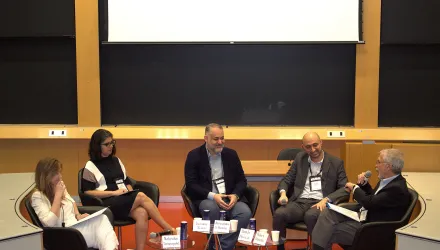One step toward explaining the rise of climatic change as a political issue is the recognition that interest in it has been nurtured through the political activities of scientists. Beginning in the 1950s, entrepreneurial members of the scientific establishment forged links between their research and the public and private interests of political actors who might be in a position to support them. These entrepreneurs adopted three major strategies between 1957 and 1974. First, they attempted to develop autonomous domestic and international atmospheric science institutions in which they could direct research funding to their own priorities, which included research on anthropogenic climatic change. They justified their research in terms of its contribution to intellectual progress. Second, they took advantage of jurisdictional disputes among some agencies and Congressional factions with regard to weather modification policy to recruit allies. Their support for one side in the dispute was connected to its commitment to their research. Finally, they adopted the rhetoric of the environmental movement to make the issue appear more relevant and important to a different set of agencies. None of these strategies was particularly successful; alternative strategies might have been more fruitful. While their activities may have seemed natural to the actors involved, the paper suggests that more deliberate political strategizing on the part of scientific entrepreneurs may be both plausible and useful.
Hart, David. “Strategies of Research Policy Advocacy: Anthropogenic Climatic Change Research, 1957-1974.” Harvard Kennedy School, December 1, 1992





